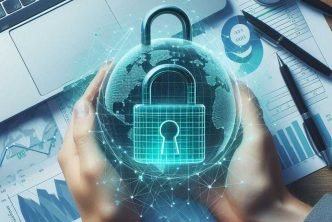Table of Contents
Physical Home Computer Security Tips
You know that feeling when you leave the house and immediately start wondering if you locked the door? That nagging worry that someone might break in and rifle through your stuff. Our digital lives need that same kind of vigilance. Just like you secure your physical home, you need to lock down your digital haven too. Your computer contains your most precious possessions – family photos, financial info, personal communications. Leaving it unprotected is like leaving your front door wide open with a neon “Rob me!” sign. Don’t worry, home computer security isn’t hard. Just a few simple steps can keep the bad guys out and give you peace of mind. Read on to learn how to lock down your digital life and sleep easy at night.
Software and Network Security Best Practices
Lock your doors and windows.
This may seem obvious, but double checking that all entryways to your home are secure is the first line of defense for your devices. If someone can’t get in, they can’t access your computers.
Use a cable lock.
Cable locks are inexpensive and can be used to physically secure laptops, desktop computers, and other devices to a desk, table, or other heavy furniture. The cable attaches to a small lock which fastens the ends together. While not foolproof, it can deter quick grabs and opportunistic thieves.
Consider a home security system.
For the best protection, a full security system with monitoring is ideal. At a minimum, install motion-activated lights, security cameras, and alarms on entryways. These measures greatly reduce the chance of someone breaking in and stealing your digital equipment.
Keep computers in a secure room.
If possible, set up your home office or computer room in a location away from easy access points like ground floor windows. An upper floor room or basement area may be more secure. For the ultra-cautious, you can install a lock on the computer room door for an added barrier.
Backup your data offsite.
The ultimate safeguard is ensuring your valuable data is backed up remotely in case anything does happen to your local devices. Backing up to the cloud or another offsite location means that even if someone did gain access to your computers or steal them, your data would remain accessible and secured.
Top FAQs on Home Computer Security
To keep your digital life locked up tight, start with your software. Make sure you’re running the latest versions of your operating system and web browser, since updates often contain critical security patches. You should also have reputable antivirus software installed and keep it up to date.
Secure Your Networks
Having a strong password for your Wi-Fi network is a must. Change the default password to one that’s at least 12 characters long, with a mix of letters, numbers and symbols. You should also consider enabling encryption on your network.
Be Careful What You Click
Be wary of unsolicited messages and pop-ups, especially those containing links, downloads or requests for personal information. Phishing emails and malicious websites are common sources of malware and identity theft. Only click links and download software from sources you know and trust.
Back Up Your Data
In the event of a software or hardware issue, a backup can be a lifesaver. Use an external storage drive or cloud storage to back up important files like documents, photos and financial records. That way your digital life can be restored if anything gets corrupted, infected or compromised.
Following these best practices will go a long way toward keeping your home computer and network secure. Staying vigilant and using common sense online can help ensure your digital haven remains a safe space. Take the time now to lock down your digital life – your future self will thank you!





